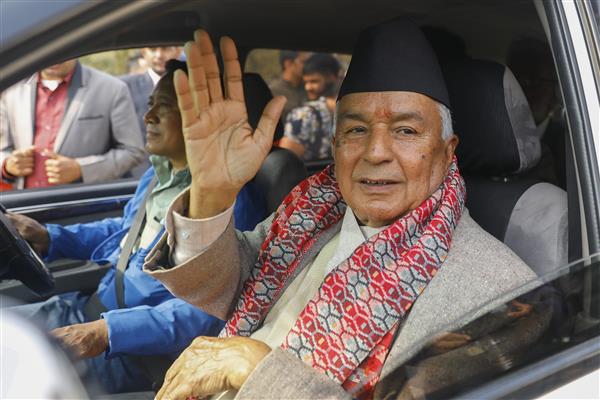Malaysian Hindus carried offerings up hundreds of steps to a major temple Monday to mark the annual Thaipusam festival in celebrations that were scaled back due to the coronavirus pandemic.
The event sees Hindus, a sizeable minority in multi-ethnic Malaysia, show their devotion to the deity Lord Murugan.
Hundreds headed to the Batu Caves temple complex outside Kuala Lumpur and walked barefoot up 272, multi-coloured steps to reach the site, carrying offerings such as milk pots.
But celebrations were muted compared with the years before the pandemic, when huge crowds would throng the site, with officials limiting numbers to cut the risk of Covid-19.
Once a common sight at Thaipusam, “Kavadis” — ornate metal structures that devotees affix to their bodies with sharp metal spikes — were also banned this year.
Hindu devotee Krishnan Karuppan told AFP that he arrived at the temple before dawn.
“Many people are afraid (to come),” he said. “My own children didn’t come — they’re all at home.”
Another worshipper at the temple, Ariyenthiran T. Somasundram, added that “to be on the safe side, it is better” to limit numbers.
But, he said, “I’m really sad… because the crowd of millions of people are not here”.
Local media reported that authorities were limiting attendance at the temple to several thousand over Thaipusam, which officially falls on Tuesday.
Malaysia faced a serious coronavirus outbreak last year, and has reported more than 2.8 million cases and 31,000 deaths, although infection rates have dropped in recent months.
Most of Malaysia’s roughly 32 million people are ethnic Malay Muslims but the country also has around two million ethnic Indians, many of whom are Hindu.
Most are descendants of labourers brought from ethnic Tamil areas of southern India by Malaysia’s former British colonial rulers.
Lord Murugan is particularly revered in southern India and among ethnic Tamil communities in Southeast Asia.
















